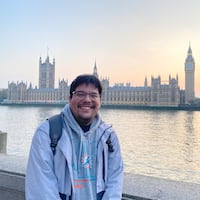Some of the appointed defense attorneys in the “Young Slime Life” gang trial say they aren’t getting paid enough to properly represent their clients.
Attorney Angela D’Williams, who represents Rodalius Ryan, submitted a motion this week asking to withdraw from the case, calling the pay “egregiously low for the amount of work and attention this trial requires.”
She and attorneys Justin Hill, Suri Chadha Jimenez and Eric Johnson were appointed by the Georgia Public Defender Council to represent three of the 14 defendants facing trial in the sweeping gang case against rapper Young Thug and his alleged associates.
They are being paid $15,000 each to represent their clients at trial, regardless of how long that might take.
“To be honest, I could make more money working at Chick-fil-A as a cashier,” said Hill, who has had to put other cases on the back burner to focus on the Fulton County gang and racketeering trial.
Credit: Miguel Martinez
Credit: Miguel Martinez
Hill said he initially accepted the case for $7,500, but that his pay was doubled because the trial is expected to last nearly a year. Even with the pay increase, Hill said he would have thought twice about taking this on had he known how time-consuming it would be.
“For at least a year’s worth of full-time work, that’s essentially less than minimum wage,” said Hill, who represents defendant Damone Blalock. “We’re basically in court all day every day so I can’t do much for my other cases. That all has to be done on nights and weekends.”
Hill, a solo practitioner, said he has no intention of withdrawing from the YSL case. But the amount of work required of him limits his ability to take on new clients and support himself financially.
“I don’t think any of us want to come off this case. We just need to be adequately compensated,” he said. He said every criminal defendant is entitled to effective counsel, even if they can’t afford to pay for it, and says the state is sending an “interesting message” by placing the fate of certain defendants in the hands of attorneys willing to “take a case for pennies out of the kindness of their heart.”
D’Williams said she has been trying to meet with the director of the Georgia Public Defender Council to discuss further compensation as jury selection drags into a fourth month.
“The amount of money that they gave us is the equivalent of working for free,” she said. “As an attorney, I’m not even asking for a lot of money, I’m just asking for a fraction of what most attorneys charge by the hour.”
A spokesman for the Georgia Public Defender Council’s said the attorneys signed a contract to take on those clients for $7,500 and were paid up front.
“In recognition of all the unique circumstances surrounding the YSL case, we also gave the a one-time supplement doubling that amount,” Thomas O’Connor told the AJC. “We are exploring means of providing them with additional compensation if possible.
“At the start of YSL case folks realized it would be complex and somewhat lengthy, but I don’t think anybody anticipated that they’d still be in jury selection as of April,” he added.
D’Williams said she feels horrible about having to withdraw from the case, having bonded with her client while sitting together in court. And she says the low pay sends a message: “If you are poor and you are charged with RICO, you are probably going to be sitting in jail without your Sixth Amendment right to an attorney because people will probably not take (the case). The government is just saying that if you are appointed, this is basically going to be pro bono.”
Most criminal defendants in Georgia — roughly 85% — are too poor to pay for their own defense lawyers and rely on state-appointed attorneys. But the state public defender system’s inability to hire and retain so-called “conflict” lawyers has left hundreds of people charged with crimes across Georgia with no one to represent them, The AJC previously reported.
Judges and defense attorneys attribute much of the problem to the paltry fees the Georgia Public Defender Council pays these lawyers. Jimenez attributes some of the blame to the prosecution and its “unlimited funds” that allow them to call witnesses, experts and prosecute cases for months.
“I don’t blame (the council), they have limited resources. They have thousands of cases, thousands of defendants that they have to take care of,” said Jimenez, who doesn’t plan to withdraw from the case.“It is the state that has created this issue, it is the state that is wanting to have a year-long trial with 300+ witnesses and 28 co-defendants.”
The Latest
Featured



